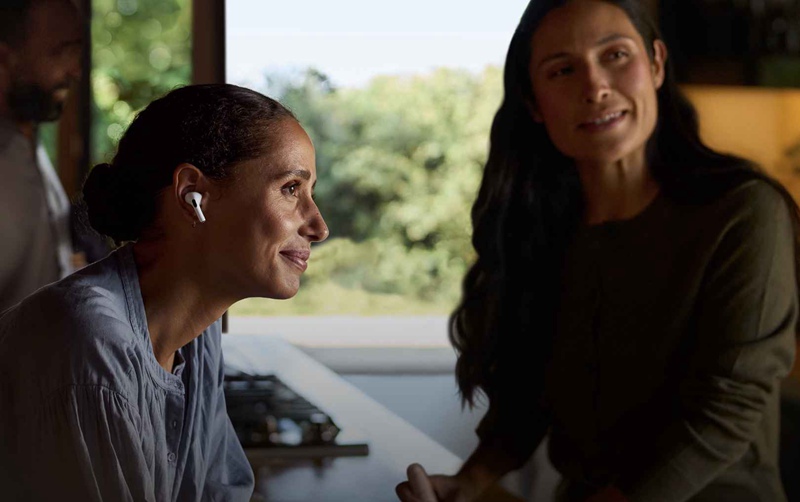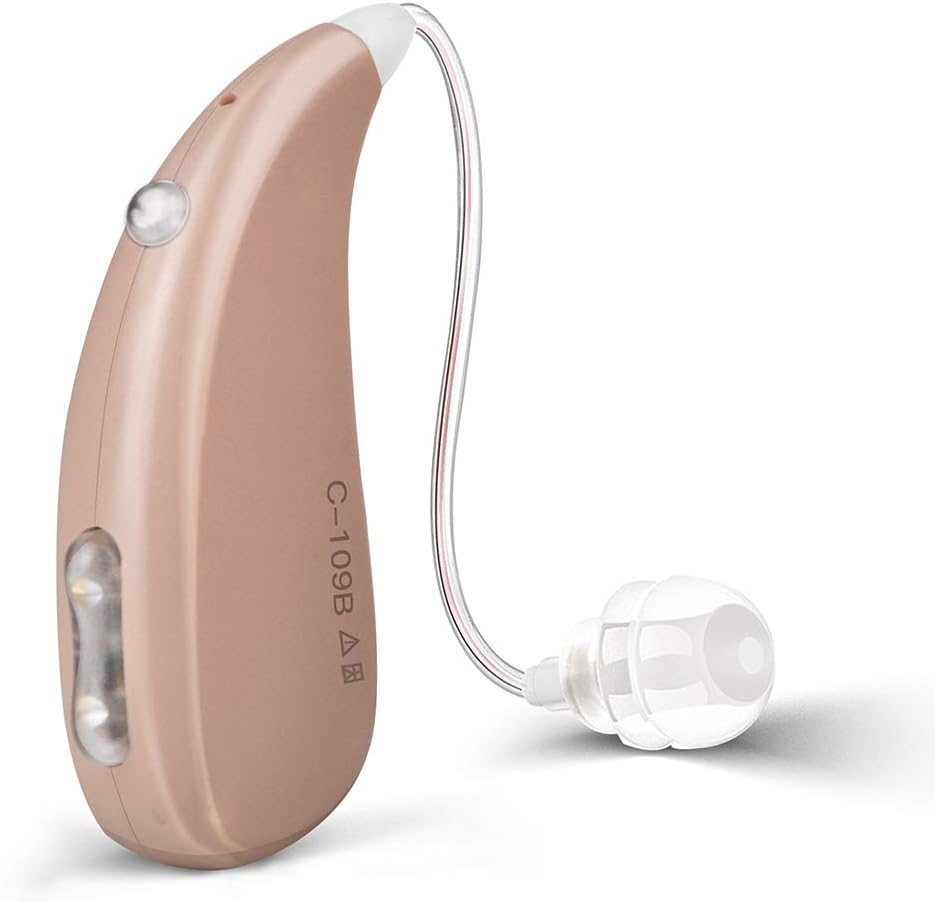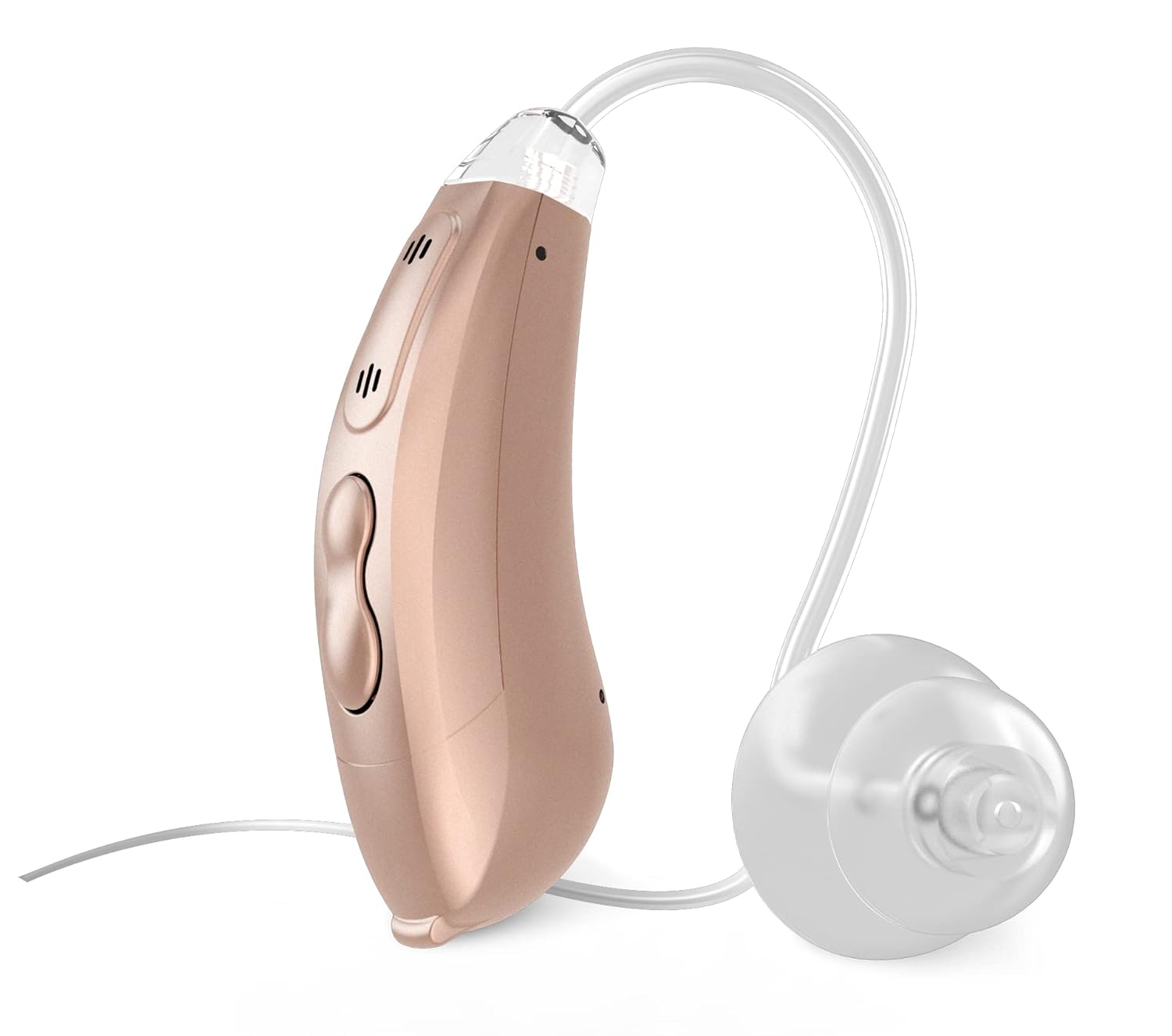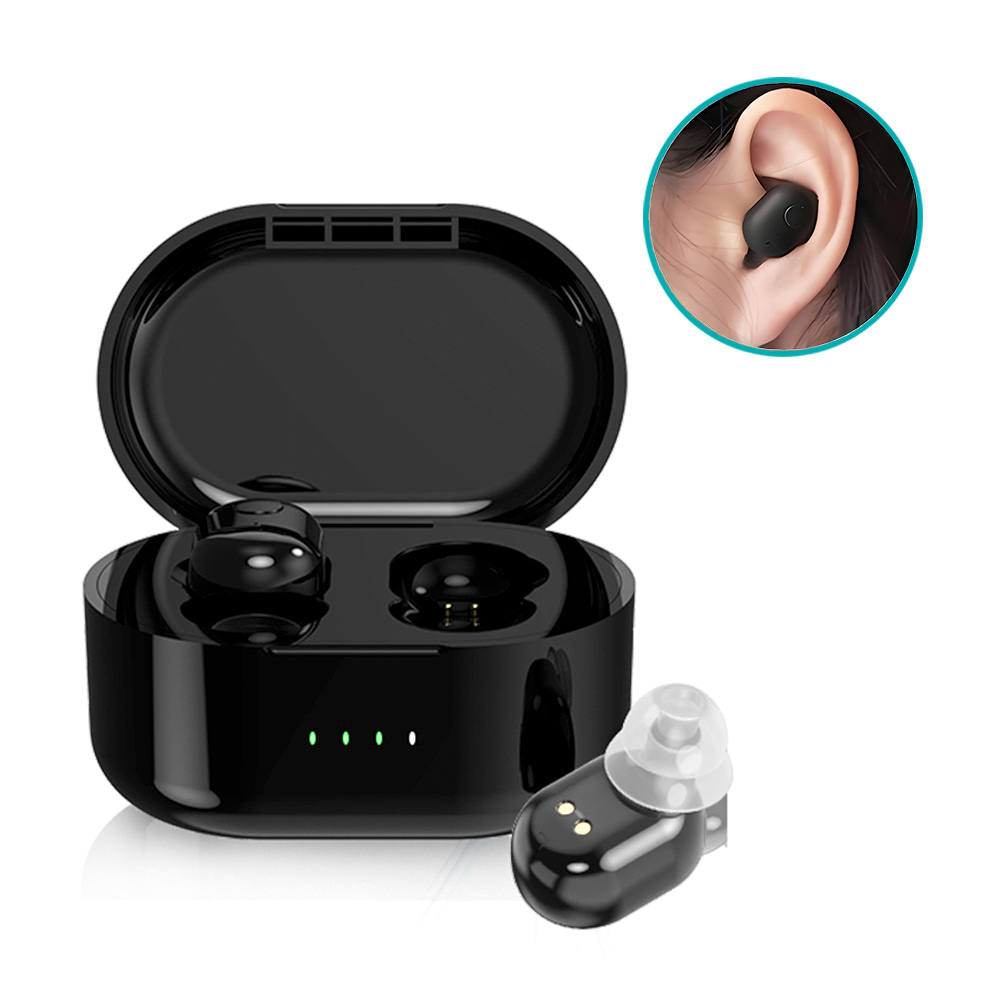 The Apple Hearing Test generates results that resemble an audiogram.
The Apple Hearing Test generates results that resemble an audiogram.Assistance: Apple Airpods Pro 2 as OTC hearing aids
A growing body of research supports the use of Apple AirPods Pro as OTC hearing aids for people with mild-to-moderate hearing loss. For example, researchers from the National Acoustic Laboratories (NAL) in Australia showed that the Conversation Boost and Ambient Noise Reduction features of AirPods Pro can improve hearing in background noise up to about 7 decibels (dB)—a large margin in terms of signal in noise benefit. A follow-up study by the same group also showed the AirPod Pro’s Active Noise Cancellation (ANC) system can reduce ambient noise levels by an average of 27 dB across frequencies—so you can add moderate hearing protection as one more important benefit for the devices.
“These changes just announced by Apple will allow the devices to be marketed as hearing aids and for hearing loss, and also will make it much easier to use the functionality that was previously buried deep within the iOS settings,” wrote NAL Director Brent Edwards, PhD. “I'm curious if there are any new hearing aid features in the AirPods themselves beyond what we have already tested.”
According to Apple, both the Hearing Test and Hearing Aid features are expected to receive marketing authorization from global health authorities soon. They are expected to be available this fall in more than 100 countries and regions, including the United States, Germany, and Japan.
“Hearing health is an essential part of our overall wellbeing, yet it can often be overlooked — in fact, according to the Apple Hearing Study, a staggering 75% of people diagnosed with hearing loss go untreated,” said Apple's Dr. Desai. “We’re thrilled to provide breakthrough software features with AirPods Pro that put users’ hearing health front and center, bringing new ways to help test for and receive assistance for hearing loss.”

Apple Airpods Pro 2 earbuds.
Prevention: Loud Sound Reduction feature
Apple reports it is introducing Loud Sound Reduction to help AirPod Pro 2 users prevent exposure to loud environmental noise while preserving the sound signature of what they’re listening to. The H2 chip helps to actively reduce loud intermittent noise at 48,000 times per second, while the ear tips provide some passive noise reduction by blocking out sound. Activated by default across all listening modes, “Loud Sound Reduction is helpful in a variety of loud settings,” says Apple. “Plus, with an all-new multiband high dynamic range algorithm, sounds at live events like concerts remain natural and vibrant so users don’t miss a beat.”
Blurring the lines in hearables and OTC hearing aids?
Since at least the 1990s, hearing industry experts have predicted an age when we would start to see "total communication devices," an era when the lines between a hearing aid and all other communication devices would blur as they merge into a seamless network. Of course, this has already happened with the majority of advanced hearing aids that offer Bluetooth audio streaming including phone calls, artificial intelligence and digital assistants, fall alerts for caregivers, and more.
OTC hearing aids were created, at least in part, to disrupt the prescription-fit hearing aid market that features professionally dispensed devices that typically cost $1,500-$6,000+, with the goal of increasing affordability and accessibility. The OTC hearing aid market, with devices that cost $99-$2,500+, may now start to see more pressure and competition from products that have previously been considered the hearables, like AirPods Pro 2 and Samsung Galaxy Buds Pro. If, as expected, the FDA approves the Apple AirPods Pro 2 as FDA-registered OTC hearing aids, it should be interesting to see if more global consumer electronics giants follow suit and join brands like Sennheiser, Sony, Jabra, and Bose with products that offer better hearing.
This article was published on September 9, 2024 and updated on September 10, 2024.
The above is the interpretation of Apple to Convert All AirPods Pro 2 Earbuds into FDA-Registered Hearing Aids, According to Plans provided by Chinese hearing aid supplier Shenrui Medical. Link https://www.sengdong.com/Blog/Apple-to-Convert-All-AirPods-Pro-2-Earbuds-into-FDA-Registered-Hearing-Aids-According-to-Plans.html of this article is welcome to share and forward. For more hearing aid related information, please visit Blog or take a look at our Hearing aids products







